Exploring Innovation: How Plastic Industries are Shaping Sustainable Technology for the Future
The plastic industries have long been at the forefront of innovation, yet their role in shaping sustainable technology is becoming increasingly significant as the world grapples with environmental challenges. According to a recent report from the Global Plastics Alliance, the global plastic market is projected to reach $1 trillion by 2025, highlighting the immense economic impact of this sector. Moreover, research indicates that innovative approaches within the plastic industries are reducing waste by up to 70%, showcasing advancements such as biodegradable materials and recycling technologies. As consumers and governments alike demand more environmentally friendly solutions, the plastic industries are responding by investing heavily in sustainable practices that not only mitigate ecological harm but also drive economic growth. This exploration of innovation highlights how these industries are adapting and paving the way for a sustainable future, emphasizing the necessity for continued investment in research and development to enhance the environmental quality of plastic products.
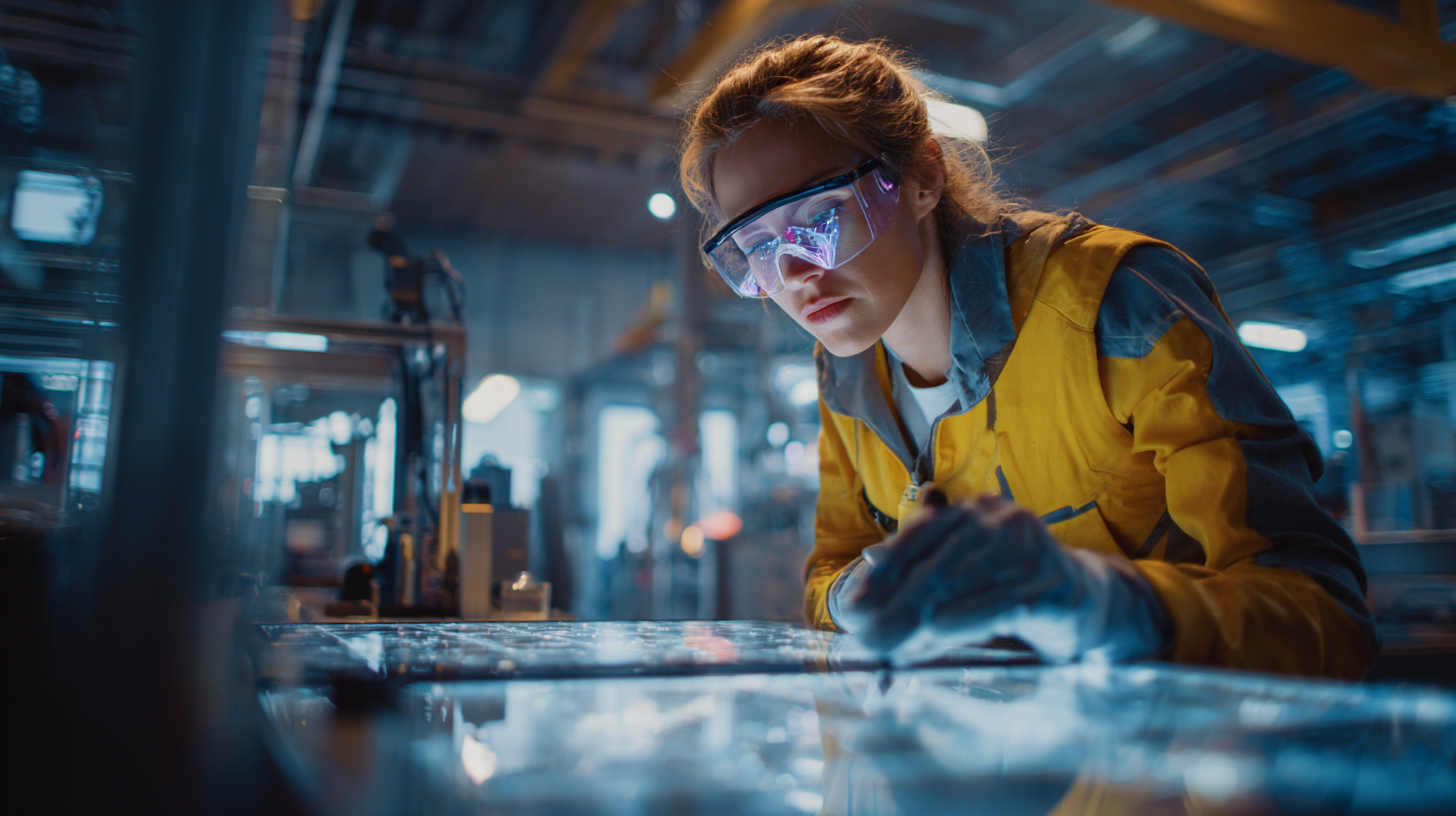
Understanding the Role of Plastic Industries in Sustainable Innovation
The role of plastic industries in sustainable innovation is increasingly pivotal as companies rise to the challenges of environmental sustainability. Recent acknowledgments of innovative practices showcase how the plastics sector is adopting new technologies and processes to minimize its ecological footprint. For instance, the announcement of the 2025 Plastic Sustainability Innovation Award winners highlights the efforts of several firms that are pushing boundaries to create more sustainable materials and practices. This transformation is particularly evident in the realm of packaging, where innovations such as recycled resins and smart technologies are reshaping how products are presented and protected, all while meeting consumer demands for sustainability.
Furthermore, the adoption of practices such as low-pressure injection molding reflects a broader shift towards manufacturing processes that are not only resource-efficient but also conducive to a circular economy. As the industry gathers at major events to address pressing challenges, collaboration among different sectors is essential for fostering impactful solutions. The drive towards circularity and emission reductions, alongside advancements in high-performance materials, illustrates a commitment within the plastics industry to not just adapt but to lead in sustainable technology for the future.
Exploring Innovation: How Plastic Industries are Shaping Sustainable Technology for the Future
| Innovation Area | Description | Impact on Sustainability | Future Prospects |
|---|---|---|---|
| Biodegradable Plastics | Plastics designed to decompose through microbial action. | Reduces plastic waste in landfills and oceans. | Increasing R&D investment for commercial applications. |
| Recycling Technologies | Advanced methods for recycling various plastic types. | Promotes a circular economy and minimizes environmental impact. | Enhancement of sorting and processing technologies. |
| Bio-based Plastics | Plastics derived from renewable biological sources. | Lowers the carbon footprint compared to fossil-fuel-based plastics. | Growing consumer demand and government support. |
| Smart Packaging | Innovative packaging that can monitor conditions inside packaging. | Reduces waste by ensuring products are used before expiration. | Potential for integration with IoT technology. |
| 3D Printing with Recycled Plastics | Using recycled plastics as filament for 3D printing applications. | Encourages recycling and reduces the need for virgin materials. | Broadening applications from prototyping to final products. |
Identifying Key Technologies Driving Plastic Sustainability Initiatives
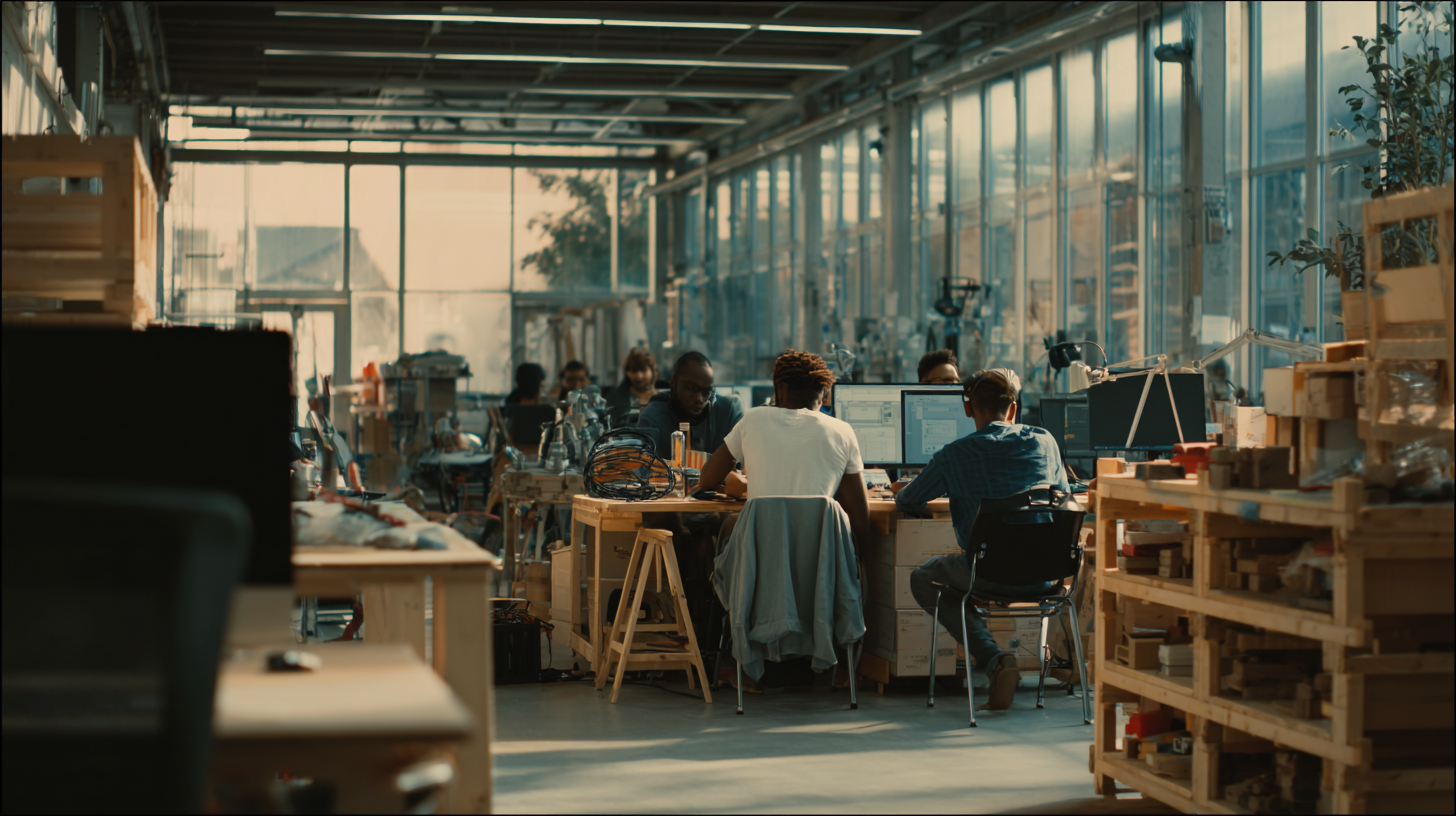 The plastic industry is undergoing a significant transformation, driven by the urgent need for sustainability. Key technologies are emerging that play a crucial role in enhancing plastic sustainability initiatives. One such technology is bio-based plastics, which are derived from renewable resources like corn and sugarcane. These materials not only reduce reliance on fossil fuels but also present a more environmentally friendly alternative to conventional plastics. Innovations in the production processes, such as using enzymes for biodegradation, are also gaining traction, allowing for the development of plastics that can naturally break down over time.
The plastic industry is undergoing a significant transformation, driven by the urgent need for sustainability. Key technologies are emerging that play a crucial role in enhancing plastic sustainability initiatives. One such technology is bio-based plastics, which are derived from renewable resources like corn and sugarcane. These materials not only reduce reliance on fossil fuels but also present a more environmentally friendly alternative to conventional plastics. Innovations in the production processes, such as using enzymes for biodegradation, are also gaining traction, allowing for the development of plastics that can naturally break down over time.
Another critical area of innovation is recycling technology. Advanced recycling methods, including chemical recycling, enable the breakdown of plastic waste into its original monomers, making it possible to create new plastic products from post-consumer materials. This process significantly improves recycling rates and minimizes environmental impact. Additionally, digital technologies, such as blockchain, are being employed to enhance traceability in the recycling chain, ensuring that recycled materials are tracked and properly utilized. Together, these key technologies are positioning the plastic industry as a proactive player in the quest for sustainable practices, paving the way for a greener future.
Evaluating the Lifecycle Impact of Sustainable Plastics on the Environment
The exploration of innovative sustainable plastics in the industry has garnered significant attention, particularly regarding their lifecycle impact on the environment. A recent report by the World Economic Forum highlights that the production and disposal of plastics account for approximately 3.8% of global greenhouse gas emissions. As the industry shifts toward sustainable alternatives, the implementation of biodegradable and recycled materials is becoming crucial in mitigating these environmental effects. For instance, studies show that using bio-based plastics could reduce carbon emissions by up to 50% throughout their lifecycle compared to traditional petroleum-based plastics.
Moreover, the lifecycle assessment (LCA) methodology is increasingly being utilized to evaluate plastics' environmental impacts comprehensively. According to a report from the Ellen MacArthur Foundation, a circular economy approach to plastics—where products are not only designed for reuse but also for recyclability—can significantly diminish environmental footprints. By 2030, adopting such methods could lead to a 30% reduction in plastic waste entering the ocean, effectively protecting marine ecosystems. The shift towards sustainable plastics is not only pivotal for reducing pollution but also represents a strategic move for industries to align with global sustainability goals.
Collaborative Efforts: How Stakeholders are Advancing Plastic Innovations
In recent years, the plastic industry has increasingly recognized the importance of sustainability, fostering a collaborative environment among various stakeholders. This cooperation includes manufacturers, researchers, and policymakers who are working together to develop innovative solutions that minimize environmental impact. By sharing knowledge and resources, these groups are creating advanced materials and recycling systems that not only enhance product functionality but also contribute to a circular economy.
Collaborative efforts are leading to the emergence of new technologies that transform plastic waste into valuable resources. For example, partnerships between tech firms and recycling companies are yielding breakthrough methods for converting discarded plastics into high-quality raw materials. Additionally, academic institutions are playing a crucial role by conducting research that informs best practices and sustainable methods for plastic production. As these stakeholders unite their efforts, they are laying the groundwork for a future where plastic is utilized responsibly, ultimately shaping a greener planet.
Future Trends: Shaping the Future of Plastic in Sustainable Technology Solutions
The plastic industry is evolving rapidly, with a strong emphasis on sustainability. As consumer preferences shift towards eco-friendly products, the bioplastics market has witnessed remarkable growth. Valued at $3.76 billion in 2023, it is projected to climb to $3.98 billion in 2024 and reach approximately $6.33 billion by 2032, reflecting a compound annual growth rate (CAGR) of 5.9%. This trend is indicative of a broader shift within the fast-moving consumer goods (FMCG) packaging market, which is projected to expand from $823.83 billion in 2024 to $1.34 trillion by 2032, fueled by a growth rate of 6.28%.
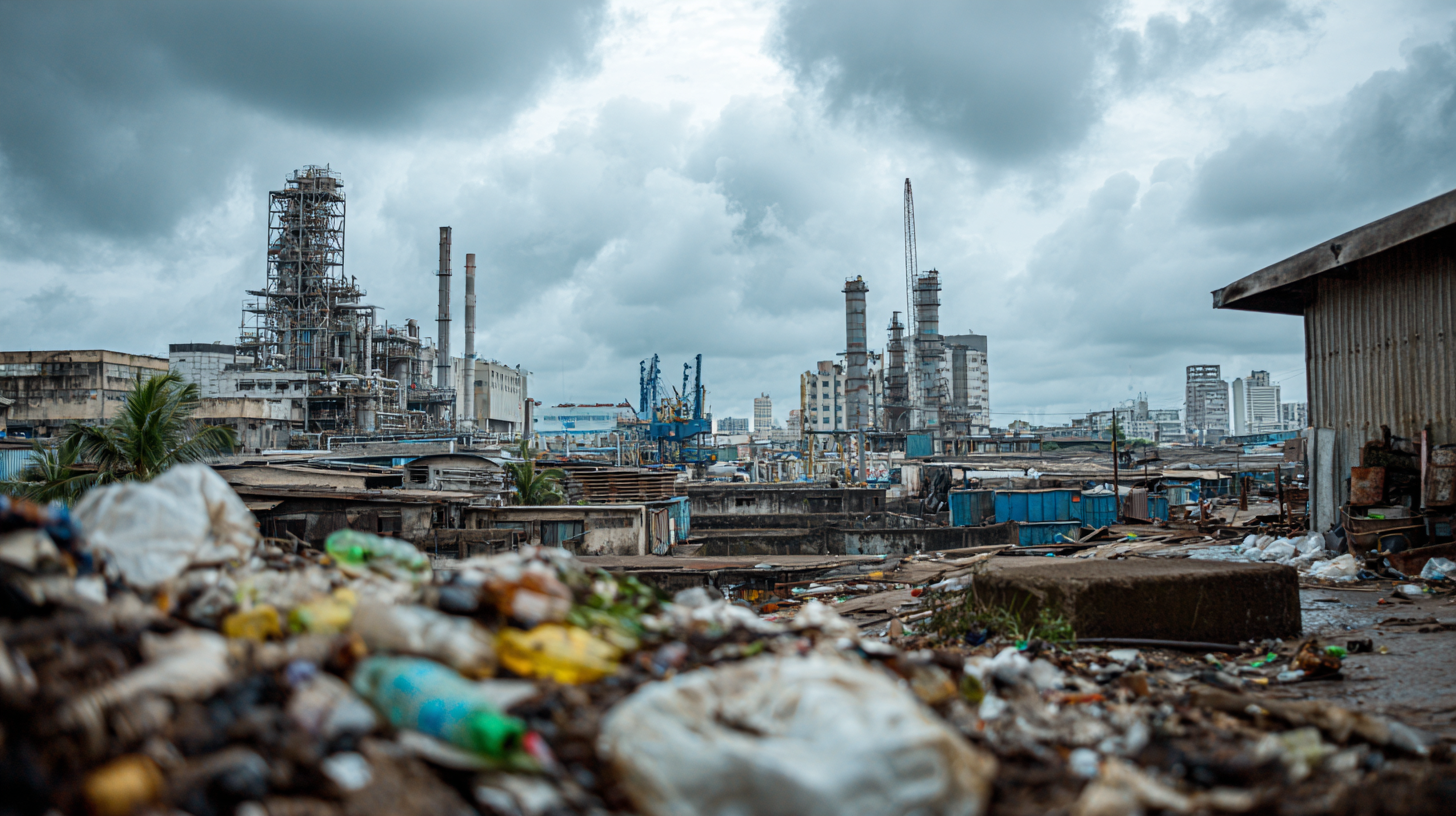
In addition to bioplastics, the market for biodegradable polyhydroxyalkanoates (PHA) is also on the rise, expected to grow significantly between 2025 and 2033, with a CAGR of 10%. Other sectors like paper straws and disposable cups are likewise experiencing noteworthy growth driven by sustainability trends. The paper straw market is forecast to soar from $71.93 million in 2023 to over $360.45 million by 2032. These developments not only highlight innovative leaps in material science but also emphasize the plastic industry's commitment to shaping a more sustainable future.
Related Posts
-
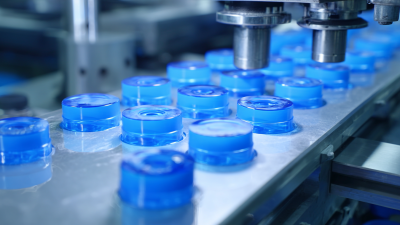
Understanding the Future of Plastic Components in Sustainable Manufacturing Processes
-
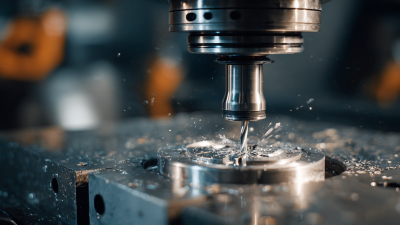
The Future of Micro Machining Technologies Driving Precision Engineering Innovations
-

Revolutionizing Manufacturing: The Impact of Super Finishing Process on Product Quality and Efficiency
-

Unlocking Industry Potential with Plastic Mold Innovation at the 138th Canton Fair 2025
-

Transforming Industries: Unleashing the Power of Cutting-Edge Industrial Applications
-

Exploring the Future of Plastic Components: Innovations and Sustainability in Modern Manufacturing








